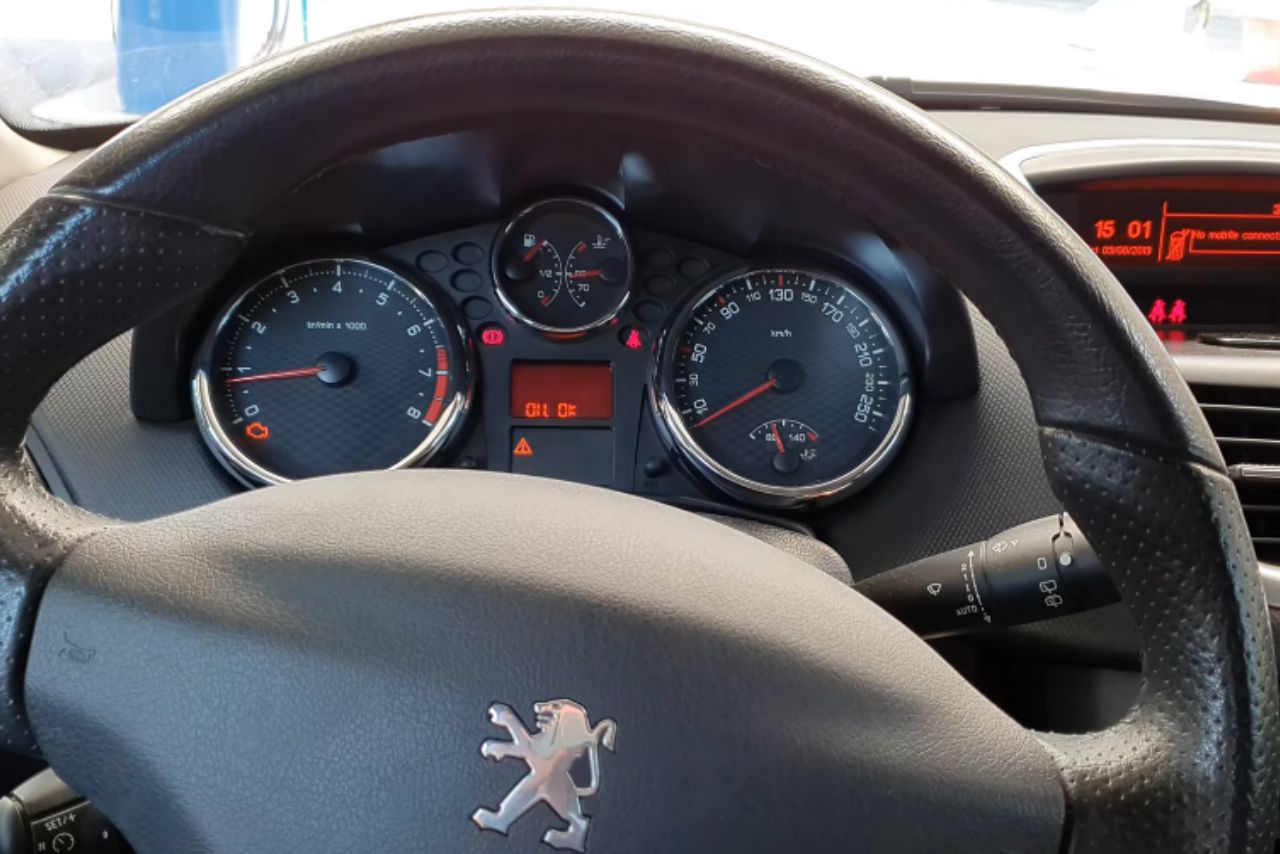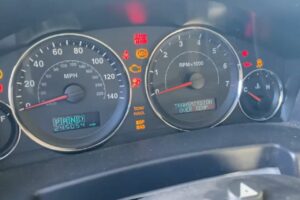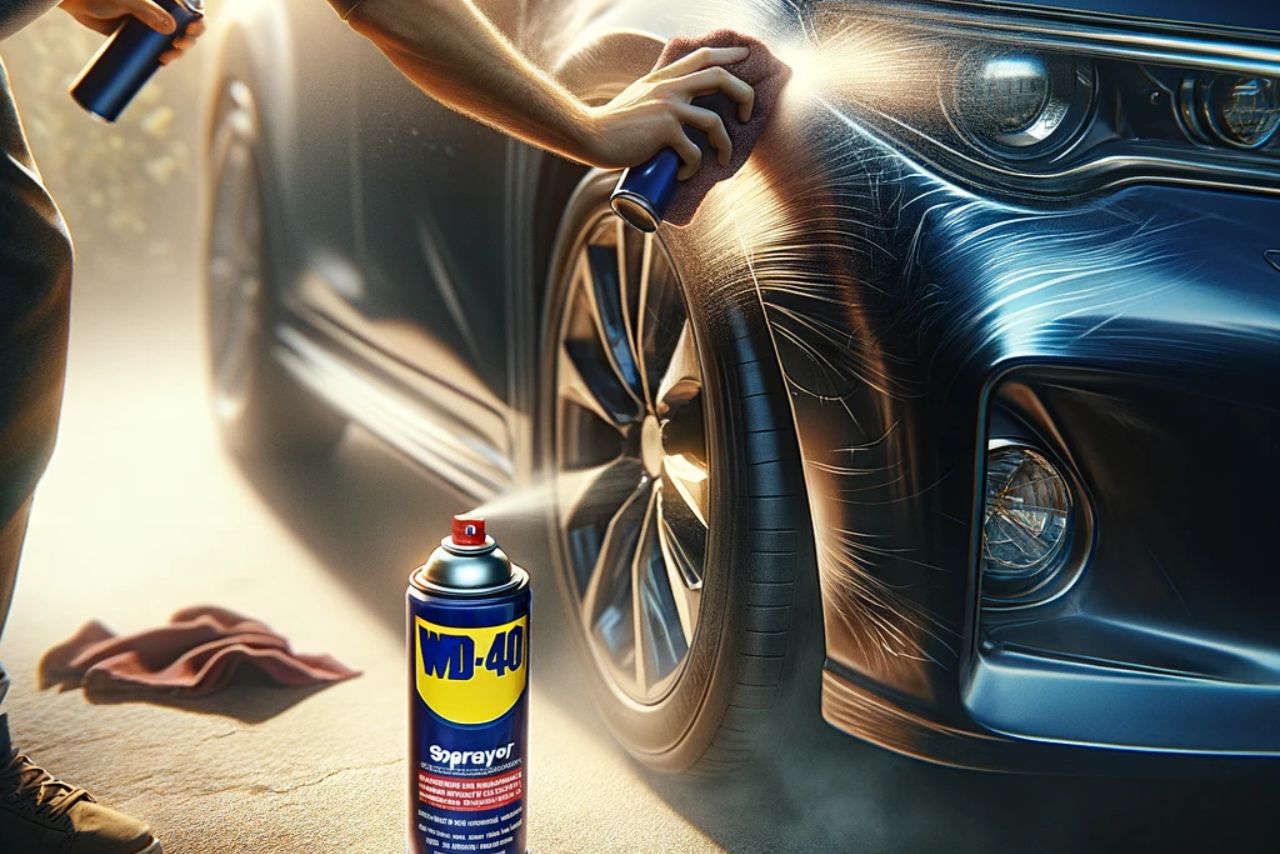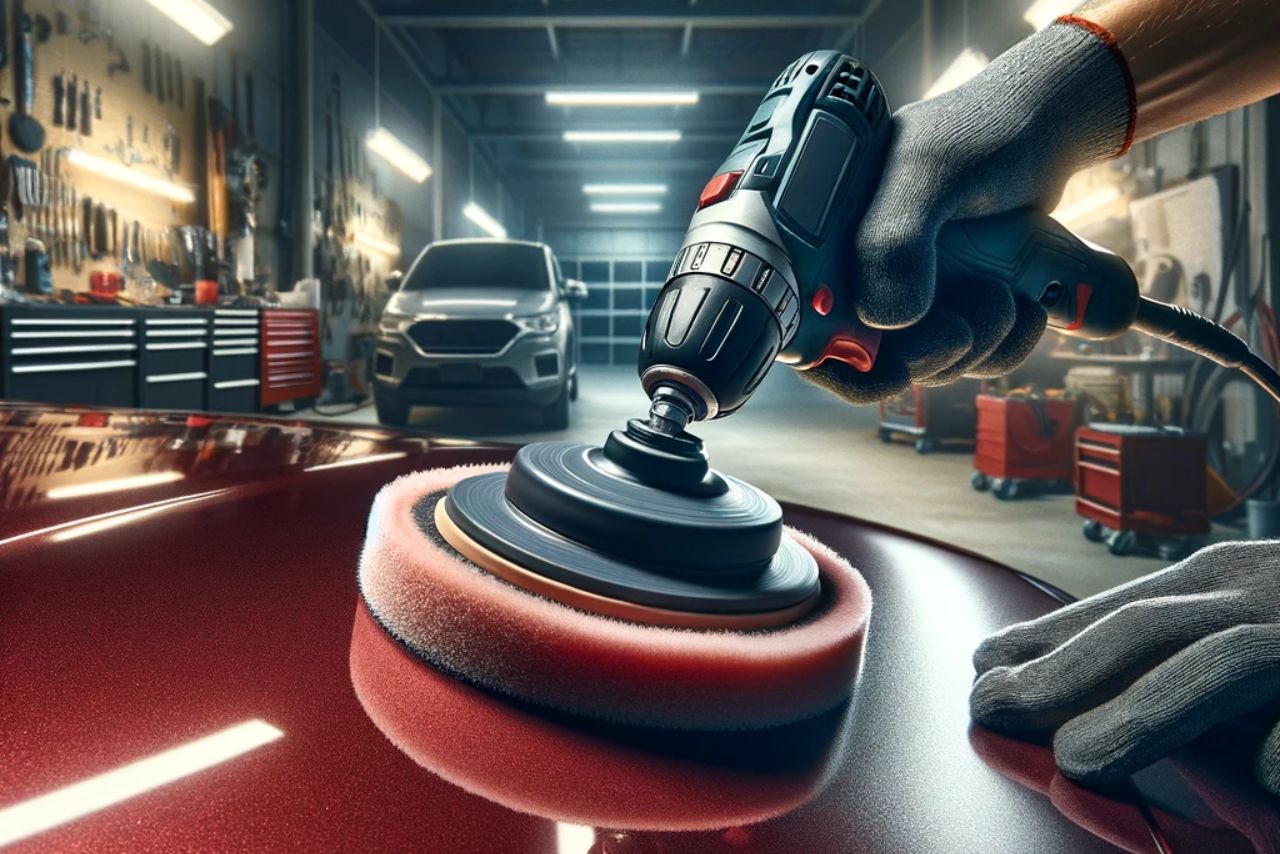Driving a car like the Peugeot 307, it’s quite common to encounter a warning on your dashboard that reads “depollution system faulty.”
But what are the common causes for Peugeot 307 Depollution System Faulty? In essence, this error message usually indicates that there could be an issue with your exhaust system or other components affecting emissions.
From clogged diesel particulate filters and malfunctioning EGR valves to damaged oxygen sensors or fuel injectors – all these can contribute to the depollution system fault in a Peugeot 307.
This article will delve into each of these potential culprits in more detail.
This message indicates an issue with your car’s emissions control system. It could be caused by various factors, including: Faulty oxygen sensor, Faulty exhaust gas recirculation (EGR) valve, Problematic catalytic converter, Faulty diesel particulate filter (DPF) and Faulty glow plugs (diesel engines only).
Table of Contents
What is the Depollution System in Peugeot 307?

The depollution system in a Peugeot 307 is an integral part of the vehicle’s exhaust system. It’s designed to capture, store, and dispose of harmful pollutants that are generated during engine operation. Here’s what you need to know:
The depollution system includes several key components:
When functioning correctly, the depollution system reduces environmental impact by decreasing:
| Key Component | Function |
|---|---|
| Catalytic Converter | Converts harmful gases into less harmful ones |
| Diesel Particulate Filter | Traps soot particles from diesel emissions |
| Oxygen Sensors | Ensures optimal combustion by monitoring oxygen levels |
Remember:
- Regular maintenance can help ensure your car’s depollution system operates efficiently.
- Ignoring warning signs or error messages related to the depollution system may result in more serious damage over time.
In conclusion, understanding how your Peugeot 307’s depollution system works will keep your vehicle running smoothly while minimizing its environmental footprint!
Common Symptoms of a Peugeot 307 Depollution System Faulty:
If your Peugeot 307’s depollution system starts acting up, there are some common signs to help pinpoint the problem.
| Symptom | Description |
|---|---|
| Check Engine Light | This will illuminate on your dashboard |
| Decreased Fuel Efficiency | More frequent trips to the pump |
| Performance Issues | Poor acceleration and difficulty with inclines |
Remember these symptoms don’t always mean a faulty depollution system, they can also point towards other issues within your vehicle. Always consult with a professional mechanic for accurate diagnosis and repair.
Causes of a Depollution System Fault in Peugeot 307:

Depollution system faults in the Peugeot 307 can be traced back to several common causes:
Here’s a quick comparison table for these common causes:
| Cause | Description |
|---|---|
| Faulty EGR Valve | Can get clogged/malfunction resulting into warning signals |
| Damaged Oxygen Sensors | Errors due to malfunction/damage affect emission control |
| Blocked DPF | Captures and stores exhaust soot; blockage/faults lead to problems |
With each of these potential culprits:
- Check and clean the EGR valve regularly.
- Regularly inspect oxygen sensors for damage.
- Ensure that the DPF isn’t blocked by performing periodic maintenance checks.
Regular maintenance is key as it allows early detection of any faults hence preventing costly repairs later on.
Watch this video for more in-depth detail:
1. Faulty Oxygen Sensor: A Possible Cause:
The oxygen sensor, an important component of your Peugeot 307’s depollution system, might be responsible for the “Depollution System Faulty” message. It measures the level of oxygen in your car’s exhaust gases.
Here are some common signs that indicate a faulty sensor:
Why does it matter?
When this sensor fails, it can lead to:
- Poor fuel efficiency – Your vehicle may consume more fuel than necessary.
- Increased emissions (hence the depollution warning) – More pollutants will be released into the environment.
Common Causes
Here’s a breakdown of common reasons behind a failing oxygen sensor in a table format:
| Cause | Explanation |
|---|---|
| Contaminated or Failed Sensor | This could be due to oil ash accumulation or usage over time causing it not to respond correctly |
| Wiring Issues | Damaged wires connecting the sensor can cause false readings |
| Burned Out Heater Circuit | The heated circuit within sensors can burn out and malfunction |
If you notice any symptoms listed above, get your car checked by a professional technician immediately.
2. Clogged Catalytic Converter: Another Potential Culprit:
The catalytic converter plays a critical role in the Peugeot 307 depollution system. It’s responsible for converting harmful gases into less toxic substances before they’re released from your car’s exhaust.
If it gets clogged, you might see the dreaded “depollution system faulty” warning light on your dashboard.
Here are some reasons why this happens:
And these are symptoms to look out for:
- Reduced engine performance
- Lower fuel efficiency
- A foul smell from exhaust
For diagnosis and potential solutions, refer to the table below:
| Steps | Description |
|---|---|
| -Step 1- | -Check oil levels regularly; high consumption could indicate an issue.- |
| -Step 2- | -Use quality fuel always; avoid cheap, low-quality alternatives.- |
| -Step 3- | -Get a professional examination if there is reduced performance or unusual smells.- |
Remember, ignoring this problem may lead to expensive repairs down the line!
3. Issues with the EGR Valve: Contributing to Depollution Problems:
The Exhaust Gas Recirculation (EGR) valve plays a crucial role in controlling pollution emissions from your Peugeot 307. When it malfunctions, you’re likely to encounter “Depollution System Faulty” alerts.
Common issues include:
These problems contribute significantly towards depollution system failure. Let’s look at each issue more closely.
Clogging:
- Occurs due to long-term build-up of soot
- Causes reduced engine performance
- Leads to increased exhaust emissions
Failure
- Often results from faulty wiring
- May also occur because of mechanical wear and tear
- Results in excessive NOx emission levels
Sticking Open/Closed:
- Generally happens when there is poor maintenance
- Affects combustion process negatively if stuck closed; increases exhaust emissions if stuck open
| Issue | Cause | Effect |
|---|---|---|
| Clogging | Long-term build-up of soot | Reduced engine performance & Increased exhaust emissions |
| Failure | Faulty wiring or Mechanical wear and tear | Excessive NOx emission levels |
| Sticking Open/Closed | Poor Maintenance | Negatively affects combustion process if stuck closed; Increases exhaust emissions if stuck open |
To avoid these issues, regular servicing of your Peugeot 307 is recommended including checking for signs of damage on the EGR valve.
4. Malfunctioning Mass Airflow Sensor (MAF): How it Affects the System:
The Mass Airflow Sensor (MAF) plays a pivotal role in your Peugeot 307’s depollution system. When it malfunctions, you’re likely to encounter a ‘Depollution System Faulty’ warning. Here’s how a faulty MAF impacts the system:
Here are some common symptoms indicating a possible malfunction with your Peugeot 307’s MAF:
| Symptom | Explanation |
|---|---|
| Check Engine Light Comes On | The most obvious sign something is wrong. |
| Idle Issues or Stalling | Can indicate that too much or too little fuel is being delivered because of incorrect airflow readings from a bad MAF sensor. |
To rectify these issues:

Remember! Always consult with professional service before making major changes yourself!
5. Fuel Injector Problems and Their Impact on Depollution Performance:
Fuel injectors play a crucial role in your Peugeot 307’s depollution performance. When they malfunction, it can trigger the ‘Depollution System Faulty’ warning. Here are some common fuel injector issues that may affect the depollution system:
| Issue | Symptoms | Potential Impact |
|---|---|---|
| Clogged Injectors | Poor acceleration, reduced MPG (miles per gallon), rough idling. | Increases harmful emissions due to incomplete combustion of fuel. |
| Leaking Injectors | Smell of gasoline, hard starting or black smoke from exhaust. | Excess unburnt gas ends up in exhaust increasing pollution level. |
| Worn Out Injectors | Engine misfires or decrease in power and performance. | Disrupts optimal air/fuel mixture promoting higher emissions. |
Regular maintenance is key here:
- Get regular engine check-ups
- Use quality gasoline
- Regularly replace old injectors
Remember: Preventive measures always save you from bigger headaches down the road!
6. Electrical Wiring and Connection Issues: Troubleshooting Tips:
When it comes to the Peugeot 307 depollution system, electrical wiring and connection issues can often be the culprit. Here are some troubleshooting tips:
Here is a simple guide on what to look out for while examining wiring and connections:
| Component | Potential Issue |
|---|---|
| Wires | Breaks, burns or signs of wear |
| Connectors | Corrosion or looseness |
| Terminals | Loose contacts |
Remember these steps when dealing with electrical faults:
- Begin with visual inspection.
- Use a multimeter for testing.
- Examine connectors & terminals closely.
- Repair any identified problem areas immediately.
Proper maintenance will ensure smoother operation – remember prevention is always better than cure!
Regular Maintenance for Preventing Depollution System Faults:
Keeping up with regular maintenance can help prevent a “Depollution System Faulty” error on your Peugeot 307. Here’s what you need to do:
1. Regular Oil Changes
- Make sure to change the oil every 10,000 miles or as recommended by Peugeot.
- Using low-quality oil may cause the system to clog over time.
2. Monitor Fuel Quality
- Always use clean, high-quality fuel.
- Low-quality fuel can lead to excessive emission production which strains the depollution system.
3. Replace Air Filters
- Dirty air filters affect engine performance and increase pollutant emissions.
| When To Replace | Why It’s Important |
|---|---|
| Every 12,000 -15,000 miles | Ensure optimal air/fuel mix |
4. Maintain Exhaust System
- A faulty exhaust system can trigger depollution errors.
- Check regularly for leaks and damage.
In addition, consider having your vehicle inspected by a professional if it has been involved in an accident or if you notice any changes in its performance or fuel efficiency.
Conclusion and final thoughts
The Peugeot 307’s depollution system is a crucial part of the vehicle, designed to minimize environmental impact while maintaining optimal performance.
When it becomes faulty, you might experience poor fuel economy, increased emissions, and compromised engine performance.
Common causes include issues with the catalytic converter, oxygen sensors or fuel injectors.
Stay vigilant for warning signs like unusual exhaust smoke or a check engine light that won’t go off. Regular servicing helps prevent these faults before they escalate into more serious problems.
Trust in professional help when dealing with intricate systems such as this one – your car and environment will thank you!
Latest Posts:
- Can WD-40 Remove Scratches on Cars? (Hint: Yes, but…)
- Can You Use a Drill to Polish Your Car? (We Tried it Out!)
- Should You Cover Car Scratches With Stickers? (REVEALED!)
- Buick Service Stabilitrak: (Causes & 100% Guaranteed Fix!)
- Common Holden Trax Problems (Causes & 100% Proven Fixes!)
- Jeep Commander Transmission Over Temp: (Guaranteed Fix!)











Leave a Reply